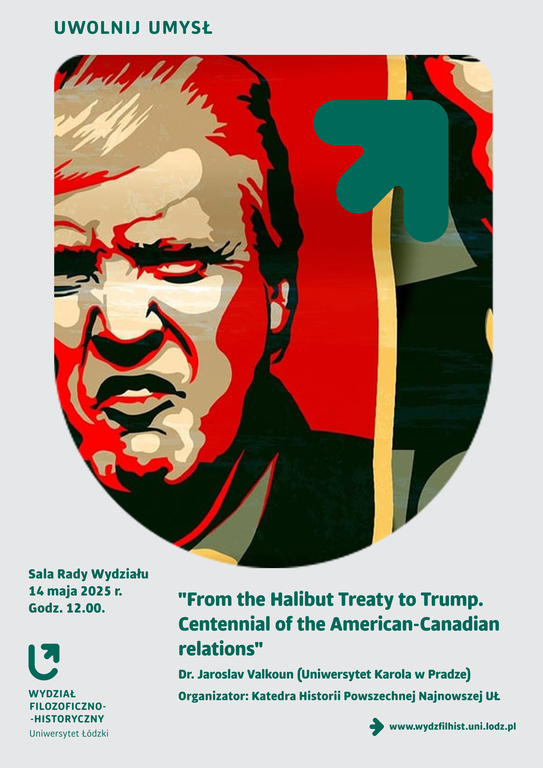About the event

The lecture will focus on a momentous century of Canadian-American relations, marked by an evolution from subtle dependence to complex partnership. The signing of the Halibut Treaty in 1923 was the key moment in shaping the dynamics. This groundbreaking document was the first international agreement in history concluded independently by a British dominion with the United States, symbolising Canada's growing autonomy in the international arena.
The turbulent interwar period saw a systematic strengthening of ties between Ottawa and Washington, which was reflected in the intensification of economic and political cooperation. This trend was further strengthened after the end of World War II, when both countries became key allies within international structures and in the face of global challenges.
However, in recent history, traditionally strong pro-American sympathies among Canadians have been put to the test. The unprecedented pronouncements of President Donald Trump have gone some way to weakening those feelings, opening a new chapter in the complex narrative of Canada-US relations and raising questions about the future of this strategic partnership.
About the speaker
Dr Jaroslav Valkoun is an employee of Charles University in Prague and the University of West Bohemia in Pilsen. He specialises in international politics of the 20th century, and British imperial policy is of his particular interest. More information about the speaker's scientific publications.
Practical information
The lecture will be held on 14 May (Wednesday) 2025 at 12:00 p.m. in the Council Room of the Faculty of Philosophy and History of the University of Lodz (room 103, 1st floor –hm. A. Kamińskiego 27a).
The lecture will be held in English.
Information: Department of Contemporary World History, University of Lodz
